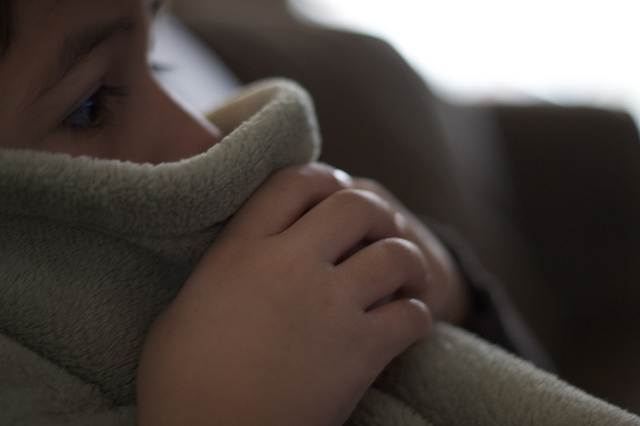Whom do we trust?
Do we trust our family, our partner and our friends? Do we trust a stranger?
These are deeply personal questions, to which inevitably we all have different answers. For instance, while we might trust our family with making life-or-death decisions for us in case of a tragic accident, we likely do not feel this way about fleeting acquaintances.
With the people who make our “trust list,” why do we feel we can trust them? Is it a shared history, or a gut feeling? Often, the reasons are complex. It is hard to express them even to ourselves.
While I have had the gut-wrenching experience of betrayal in the past, I am grateful that it is not part of my reality anymore. It has been years since somebody last broke my trust and that incident turned out to be a blessing in disguise.
But if a person we trust betrays us, what does this mean for us and our lives?
Having our trust broken is emotionally devastating. Depending on the situation and our history, it may take us a long time before we open ourselves up to others again.
Recently, I had a chance to reflect on questions of betrayal in my life.
At a friend’s recommendation, I was watching the television series The Honourable Woman. Its main character Nessa Stein, a successful businesswoman, is highly traumatized. In this spy thriller, everybody is betraying everybody else—including Nessa—all the time.
Watching all the betrayals in the show created an eerie feeling in my stomach. Just as I had expressed to my husband that I did not enjoy it, I found out via a phone call that someone I had trusted a lot had hurt other people significantly. For the sake of anonymity, let me call this person X.
When I found out what X had allegedly done, my mind initially didn’t process the information. It just did not fit together. “What?” My tone was incredulous, upon hearing what seemed to have happened. “Why?”
I had relied on this person’s personal advice in a challenging situation. X had been really helpful and now I was asking myself to what an extent I could trust their guidance.
For a while, I felt sick to my stomach. I could not understand why someone so amazing, someone who had helped me a lot, could do something as hurtful to other people as it appeared to be.
And yet, the evidence suggested that this was what had happened.
In the midst of this internal process, I found myself relating more to Nessa’s difficult situation and her conclusion: it is a wonder we trust anyone at all.
Thus, a few hours after expressing my discontent about the The Honourable Woman to my husband, I found myself sitting eagerly in front of the screen with him, watching the intro to the last episode. This time, I could not help but let the now familiar words of Nessa resonate through me, in a whole new way: “Who do you trust? How do you know?”
It was like taking a day trip to a place I used to live at but that I left a long time ago.
It took me a bit but then the shock wore off, without a residue. I was back in my world, a world that is the exact opposite. In my world, my trust had been shaken up for a moment but not compromised long-term. A few weeks later, it also turned out that there had been mitigating factors which to some extent explained—but not excused—the behavior of X.
Here are four key insights on moving past betrayal that I gained from my recent experience:
1. The importance of trusting others. If we want to live a happy life, there is no real alternative to trusting others. Without a basic sense of trust, we could not even leave our house or get behind the wheel of a car. This insight is the reason I do not agree with Nessa’s conclusion that it is a wonder we trust anyone at all.
2. The importance of trusting others wisely. We need to trust wisely, not blindly. Trust in others is as necessary as discernment. Not everybody has our best interest in mind all the time. When we overlook alarm signals, we are betraying ourselves.
3. The importance of trusting ourselves. The importance of trust is even more pronounced in our relationship with ourselves. Since we are the ones behind the steering wheel of our life, it is crucial that we trust ourselves and our own discernment.
4. The importance of doing our healing work. This is the master lesson that unlocks all other ones. If we have been wounded, we need to heal in order to be able to trust others, to trust our own discernment and to trust ourselves. There is no magical epiphany that will resolve our trust issues for good.
Trust does not respond well to a “fake it until you make it” approach. Without appropriate healing work, we will probably once again be drawn to situations that break our trust. Healing makes betrayal much less likely. It might well be impossible to create a trustworthy environment around us if we have not healed our underlying issues.
I genuinely believe that the reason why patterns of betrayal do not play itself out in my life anymore, is because I have done so much healing work. While this has not always been easy, it is better than the alternative.
The same is true for all of us: Healing work might make us more uncomfortable temporarily but will improve our lives in the long run.
In my case, the phone call I received ultimately did not have a big impact on my life: I was not personally hurt by what X had done—X had actually helped me a lot. Because X had hurt others, I decided to take time to re-evaluate our relationship.
At the end of this re-evaluation, I will still trust others and life.
And even more importantly, I will continue to trust myself—even more than before.
P.S. I am sure you have insights for moving past betrayal that are not mentioned in this article. Please share them in the comments below.
Author: Bere Blissenbach
Editor: Sara Kärpänen
Photo: Kathryn / Flickr









Read 3 comments and reply